
New Warzone Map Teased for MW3
Sledgehammer Games might have teased a new Warzone map inspired by Verdansk coming to Call of Duty in the upcoming months.
1970-01-01 08:00

Vampire Survivors Cherry Bomb: How to Evolve
Cherry Bomb can be even better when you upgrade it to Yatta Daikarin. Here's how to do that.
1970-01-01 08:00
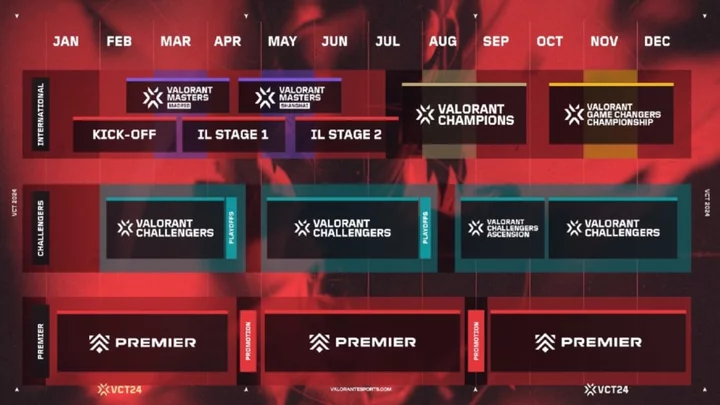
Valorant Champions Tour 2024 Details Announced
The Valorant Champions Tour 2024 is hosting Masters events in Madrid and Shanghai, introducing VCT China, and implementing major changes to Valorant Challengers.
1970-01-01 08:00
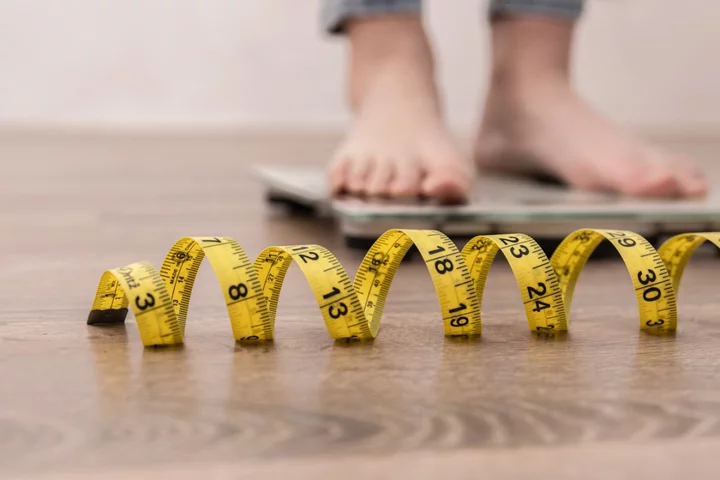
Weight loss surgery can reduce risk of cancer among women, study says
Weight loss surgery can help lower the risk of developing cancer, a study has claimed. The study, conducted by researchers at the University of Utah, also found that cancer mortality rates were significantly lower among female surgical patients compared to those who did not receive any bariatric surgery. Although population studies have previously established a positive association between body mass index and cancer rates, it has remained unclear whether the reduction in body weight leads to reduced cancer risk. Researchers say this is due to significant and sustained weight loss in large populations which may be difficult to achieve. However, because of the substantial and maintained weight loss following bariatric surgery, recent studies have reported reduced cancer rates and lower cancer mortality compared with those who haven’t had the proceedure, according to the study’s authors. “As scientists study human diseases, an element of discovery is to confirm like results from multiple studies,” said study author Ted Adams. “This research represents another important study that strongly supports the long-term benefits of weight loss surgery in the prevention of cancer.” Researchers compared cancer prevalence and death rates arranged according to obesity and non-obesity-related cancers, looking at sex, stage of the disease and procedure. The study looked at 22,000 bariatric surgery patients compared with non-surgical subjects with severe obesity between 1982 to 2019. Each patient was matched up based on age, sex, and body mass index. Scientists found that the bariatric surgery group had a 25 per cent lower risk of developing any cancers compared to the non-surgery group. Female patients had a 41 per cent lower risk for developing obesity-related cancers compared to those who did not have surgery done. Cancer risk for male bariatric surgery patients was not lower compared to non-surgery male subjects. Overall, a significant reduction in cancer risk was shown for cancers such as uterine, ovarian, colon, pre-menopausal breast and post-menopausal breast. The study also revealed death from cancer was lower by 47 per cent among female bariatric surgery patients in comparison to matched non-surgery female patients. “Important findings of this study are that bariatric surgery results in lower incidence rates of colon cancer (prior studies have not been consistent),” Dr Adam said. “Also, both pre and post-menopausal women experience reduced breast cancer incidence following bariatric surgery, which may suggest weight loss among women in either category with severe obesity may benefit from reduced breast cancer.” The study is available online in the journal Obesity. Read More Can a vegan diet help with hot flashes in menopausal women? Exercise apps could help boost healthcare workers mental health How to check if you have skin cancer: Symptoms and signs to look out for
1970-01-01 08:00
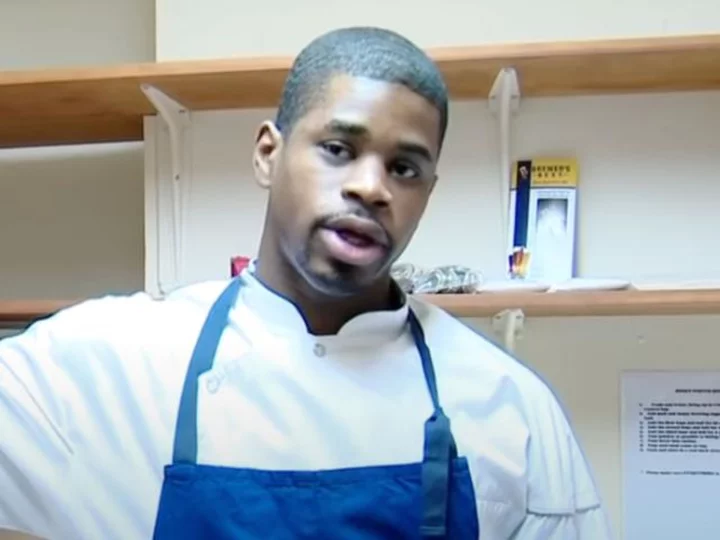
The drowning death of a former White House chef who was working for the Obama family has been ruled an accident
The drowning death of a former White House chef who was working for the Obama family has been ruled an accident, a spokesperson with the Massachusetts Executive Office of Public Safety and Security said.
1970-01-01 08:00
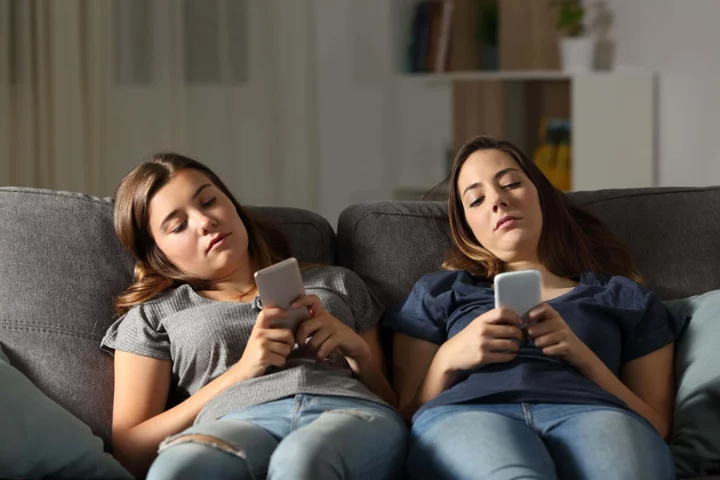
4 hacks to get teens off the sofa and get active – as study warns of heart damage
The amount of screen time teenagers get is a worry to lots of parents. And, it turns out, the health impacts of being inside and staring at a screen for long periods of time as a young person can have serious impact on physical health further down the line. According to new research, parents should limit the amount of time children spend on social media and video games, after a study found inactive teenagers are more likely to have signs of heart damage as young adults. A child may appear ‘healthy’ but, even children who have a normal weight were still at risk, the study of 766 British youngsters found, after tracking them for 13 years. Academics involved in the research, which is to be published at the ESC Congress in Amsterdam, said that this heart damage could be setting the stage for heart attacks and strokes in later life. So, how can we get teens up and out? 1. Encourage them to destress Teens may take to their screens to distract themselves from day-to-day life, watch TikToks, or aimlessly scroll – which they may see this as a form of relaxation. It might be helpful to frame exercise in the same way for stressed teens. “Young people today are facing many stress factors in their daily lives and exercise can be an important mechanism to cope and overcome such difficulties,” says Dr Triveni Joshi, consultant child and adolescent psychiatrist for Cygnet Health Care. Reiterate the benefits of exercise for their mental wellbeing too. “When you exercise, your body produces dopamine and endorphins in your brain that help you to feel good. Exercise can have a direct impact on improving mental health by reducing anxiety, depression and low mood,” she says. “Plus, exercise can give you a real sense of accomplishment and pride at having achieved a goal, thereby improving self-esteem and confidence.” Celebrate the accomplishment of just getting out and being healthy for positive reinforcement. 2. Suggest things that interest them “There is always an activity which can suit somebody,” says Joshi.”There is a range of opportunities for physical activity such as gardening, walking groups, Zumba, dancing, pilates, or swimming.” Sports like weightlifting and running are big on social media and “can improve confidence levels and tackle low self-esteem.” While being on social media may stop them from getting out, pointing towards creators who promote a healthier lifestyle may help them in the long run. Perhaps they can pair their on-screen interests and favourite creators with physical experiences. “Exercise should always be fun so often it is about finding where their interests lie and incorporating that into a healthy regime,” Joshi explains.3. Talk to them about why they don’t want to exercise There may be a reason why your teen isn’t eager to get up and about you don’t know about, and having an open discussion may help them feel more comfortable, and build a closer bond with you. “With other pressures in their lives they may feel tired and lack the motivation to get active,” Joshi says. “A lot can depend on personality type too. Introverted children may feel shy, embarrassed, or too concerned about judgements to take part in physical activity. It might not pique their interest or they may feel it is something they aren’t skilful at and therefore don’t have the motivation for fear of not being good at something.” Getting to the bottom of why they won’t exercise may help them feel more empowered to do so, particularly if you can relate to one another and take on this challenge together.4. Set a good example So much of our relationship with exercise is rooted in our childhood, so try to “encourage children to be active by setting the right example and being active yourself”, says Joshi. If you complain about exercise and are on your screen all the time, it sends the message that it’s normal. In trying to set a good example, you may find something you love to do together, like a specific yoga class, workout or weekly ParkRun. Read More Charity boss speaks out over ‘traumatic’ encounter with royal aide Ukraine war’s heaviest fight rages in east - follow live What we know so far about Naomi Campbell’s Pretty Little Thing collection Taking adult education classes may lower risk of dementia, study suggests Indiyah Polack: I didn’t want to go on Love Island because of my acne
1970-01-01 08:00
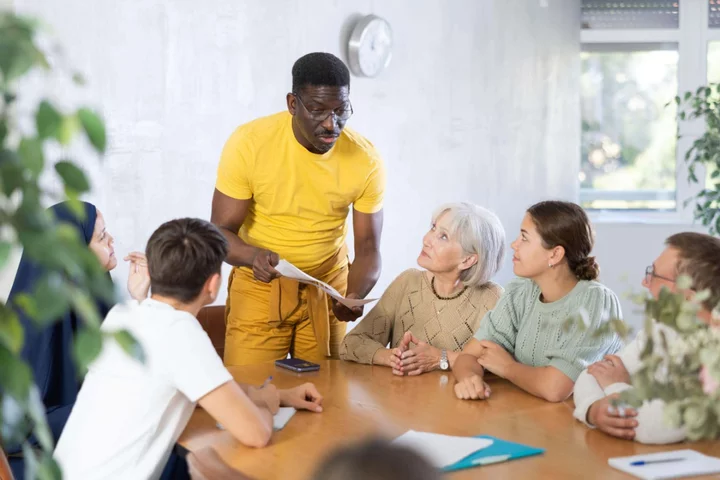
Taking adult education classes may lower risk of dementia, study suggests
Taking an adult education class could help lower your risk of developing dementia, researchers have found. Middle-aged and senior citizens in adult education have a 19% reduced chance of developing the condition within five years, a new study suggests. The findings also suggest that people who took the classes kept up their fluid intelligence – the ability to reason quickly and to think abstractly – and non-verbal reasoning performance better than peers who did not. First author Dr Hikaru Takeuchi, of Tohoku University in Sendai, Japan, said: “Here we show that people who take adult education classes have a lower risk of developing dementia five years later. “Adult education is likewise associated with better preservation of non-verbal reasoning with increasing age.” Here we show that people who take adult education classes have a lower risk of developing dementia five years later Dr Hikaru Takeuchi, Tohoku University Dr Takeuchi and his co-author Dr Ryuta Kawashima, also a professor at the Institute of Development, Ageing and Cancer at the university, analysed data from 282,421 people in the UK Biobank, which holds genetic, health, and medical information from approximately half a million British volunteers, They had enrolled between 2006 and 2010, when they were between 40 and 69, and had been followed up for an average of seven years at the time of the new study. Based on their DNA, people were given an individual predictive risk score for dementia, and self-reported if they took any adult education classes, without specifying the frequency, subject, or academic level. The study looked at data from the enrolment visit and third assessment visit, between 2014 and 2018. Those enrolled in the study were given psychological and cognitive tests, for example for fluid intelligence, visuospatial memory and reaction time. According to the study published in Frontiers in Aging Neuroscience, 1.1% of people in the sample developed dementia over the course of the study. It also found that people who were taking part in adult education, at enrolment had 19% lower risk of developing dementia than participants who did not. The results were similar when people with a history of diabetes, high cholesterol, cardiovascular diseases, cancer or mental illness were excluded. The researchers suggest this means the observed lower risk was not exclusively due to people with developing dementia being prevented from following adult education by symptoms of these known conditions. Dr Kawashima said: “One possibility is that engaging in intellectual activities has positive results on the nervous system, which in turn may prevent dementia. “But ours is an observational longitudinal study, so if a direct causal relationship exists between adult education and a lower risk of dementia, it could be in either direction.” Read More Charity boss speaks out over ‘traumatic’ encounter with royal aide Ukraine war’s heaviest fight rages in east - follow live Indiyah Polack: I didn’t want to go on Love Island because of my acne Everything you need to know about the UK’s first womb transplant Why are wellbeing experts concerned about the ‘lazy girl job’ trend?
1970-01-01 08:00
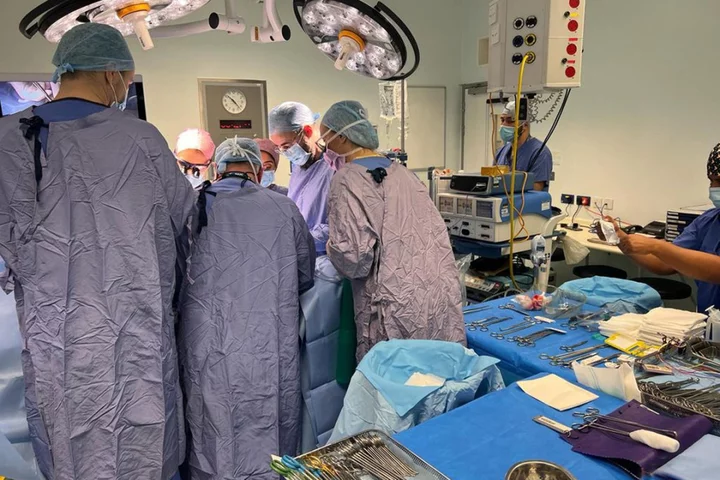
Everything you need to know about the UK’s first womb transplant
The UK’s first womb transplant means that, in future, dozens of women born without a functioning organ can carry babies of their own. – What has happened? Surgeons have performed the UK’s first womb transplant on a 34-year-old woman whose older sister donated the organ to her. In a complex procedure, the medical team removed the womb from the 40-year-old woman and implanted it directly into her sister. Both women have made a good recovery. – Have any babies been born? Not yet. Experts want to be sure the transplant is stable and the womb is functioning fully before the younger woman undergoes IVF. She has stored eight embryos and will have fertility treatment later this year in central London. The woman hopes to have more than one baby. Once she has completed her family, the womb will be removed to prevent her needing immunosuppressant drugs for the rest of her life. – Has the NHS paid for the operation? No. Each womb transplant costs around £25,000 and is fully funded by the charity Womb Transplant UK. This includes payment to the NHS for theatre time and the patient’s stay on a ward. The operations are only carried out at times when the NHS is not using the operating theatre, so they do not impact on usual NHS waiting lists. Surgeons and medical staff involved in the transplant have not been paid for the operation and have given their time freely. – Have other womb transplants been carried out around the world? More than 90 womb transplants have been carried out internationally, with most operations involving a living donor. The first successful womb transplant took place in Sweden in 2014, with the baby – Vincent – born to a 36-year-old woman who described him as “perfect”. In 2000, a transplant was performed on a 26-year-old woman in Saudi Arabia but the donor womb survived for only 99 days due to problems with its blood supply. To date, womb transplants have been carried out in more than 10 countries, including Saudi Arabia, Turkey, Sweden, the US, China, Czech Republic, Brazil, Germany, Serbia and India. – How successful is the operation? Data from the US shows that more than half of women who received a womb through a transplant in the US went on to have successful pregnancies. Between 2016 and 2021, 33 women received womb transplants in the US and, as of last summer, 19 of them (58%) had delivered a total of 21 babies. In 74% of those receiving a womb, the organ was still functioning one year after transplant and 83% of this group had live-born children. – Will there be more transplants in the UK? Yes. The second British womb transplant is scheduled to take place this autumn and experts believe a maximum of 20 to 30 per year could be carried out in the UK in the future. Transplants could help women born without a functioning womb and those who lose their organ to cancer or other conditions. Estimates suggest there are 15,000 women in the UK of childbearing age who do not have a functioning womb. – Will there be a shortage of donor wombs? Womb Transplant UK is running two programmes, one involving living donors and another with organs from people who have died. The living donor programme in the UK has so far focused on women with relatives who are willing to give their wombs. However, the team believes that in the future, the living donor programme will expand to include friends or altruistic living donors. This is currently more common in the US. The use of deceased donors is assessed by the team on a case-by-case basis. Read More Charity boss speaks out over ‘traumatic’ encounter with royal aide Ukraine war’s heaviest fight rages in east - follow live Why are wellbeing experts concerned about the ‘lazy girl job’ trend? How to check for cancer, as Morrisons puts NHS cancer advice in underwear labels Prostate screening ‘could save lives’ – the symptoms and risk factors you need to know
1970-01-01 08:00

Alliance of Motion Picture and Television Producers publicly shares latest package proposed to Writers Guild of America
The Alliance of Motion Picture and Television Producers (AMPTP) shared in a news release their latest package of terms proposed to the Writers Guild of America (WGA) as part of strike negotiations.
1970-01-01 08:00
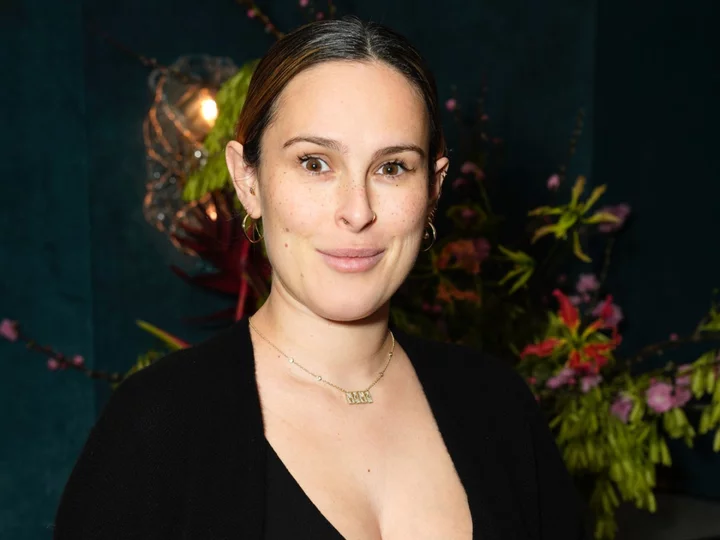
Rumer Willis reveals her daughter’s name was inspired by typo in a text
Rumer Willis has revealed that the name for her daughter, who she welcomed in April, was actually inspired by a text typo. The actress, 35, spoke candidly about her daughter, who she shares with boyfriend Derek Richard Thomas, during a recent interview with People. Willis went on to explain that while her daughter goes by Louetta, that wasn’t the name that she and Thomas had initially planned. “We were thinking about the name Loretta, and it was a typo,” she said. “Her dad and I were texting, and he left the ‘R’ out of Loretta, and it was just Louetta.” Willis - the daughter of Bruce Willis and Demi Moore - added that, after her partner made the typo in his text, she came to realise that she liked the name “Louetta” better than “Loretta”. “I was like: ‘Oh, I love that!’ I feel like it was one of those kind of divine intervention universe moments, and we figured it out actually quite early in my pregnancy,” she explained. However, according to The House Bunny star, she initially had a few concerns about if the name would be the best fit for her daughter. “What was scary was, I love this name, but oh man, is it going to be her name? Is it the right name?” she continued. What if she comes out and doesn’t look like this?” Despite her mixed feelings about the name during her pregnancy, Willis said she realised that she wanted to call her baby “Lou” once she was born. “I fell in love with the name so much, so early on, that I was then worried that it wouldn’t work,” she said. “But then she came out, and I mean, to me, at least right now, I was going to name her Lou, whether she was a boy or a girl.” She also added that both she and Thomas wanted to pick a name that had some “versatility” to it, before describing some of the different nicknames that her daughter could choose to go by. “If she doesn’t feel like a Louetta, she can go by Lou, she can go by Etta,” she said. “She can go change it up throughout her life. Whatever she wants.” Earlier this year, Willis took to Instagram to announce the birth of her first child. “Louetta Isley Thomas Willis. You are pure magic,” she wrote in the caption, alongside a snap of her then-newborn. “Born at home on Tuesday April 18th. You are more than we ever dreamed of.” Along with opening up about her baby’s name, Willis has also taken to social media to speak candidly about her experiences as a mother. Earlier this week, she hit back at criticism on Instagram after she shared a photo of herself breastfeeding her daughter. When Instagram users questioned her for sharing the selfie, with claims that she posted it “for attention,” the actress expressed how she viewed the ability to feed her daughter as a “privilege,” and accused critics of holding “a limited view of” breastfeeding. She continued defending her decision to post the photo, explaining how she wanted it to lessen the “shame” that women face. “I think it’s incredibly important to share because there is an incredible amount of shame that comes with being born into a female body,” Willis wrote. “And I want to lead by example in teaching my daughter that she doesn’t have to be ashamed of her body ever and that she can decide how she wants to share it.” Read More Rumer Willis shuts down criticism over breastfeeding photo with her child: ‘I am the happiest I have been’ Rumer Willis says she is ‘grateful’ to her body following birth of daughter Bruce Willis’ wife Emma Heming Willis says she is ‘not good’ amid his ongoing struggle with dementia Rumer Willis addresses criticism over breastfeeding photo with her child Rumer Willis says she is ‘grateful’ to her body following birth of daughter Serena Williams welcomes her second child with husband Alexis Ohanian
1970-01-01 08:00
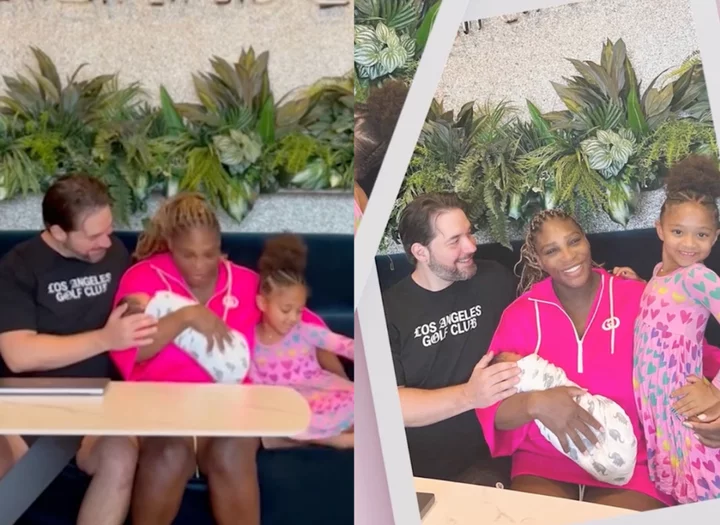
Serena Williams welcomes her second child with husband Alexis Ohanian: ‘Beautiful angel’
Serena Williams and husband Alexis Ohanian are officially the parents of two. Williams, 41, shared a video to TikTok on 22 August to announce the arrival of her second child. The one-minute video started off with Ohanian looking at a computer and sitting at a table, before his wife sat down next to him. The pair were then joined by their five-year-old daughter Olympia. The video went on to show Williams leaving the room, before she returned with her newborn baby in her arms. After the tennis star exchanged a kiss with her husband, Olympia leaned toward them to give her little sister a kiss on the forehead. The clip ended with a few sweet snaps of the now family of four. In the caption of the video, which was set to Bazzi and Camila Cabello’s hit song, “Beautiful”, Williams wrote: “Welcome my beautiful angel.” Ohanian also shared a photo of himself and his family on Instagram to announce the baby news, revealing his child’s name: Adira River Ohanian. He continued the caption of his post by expressing his gratitude for his second daughter and wife, along with the doctors who cared for them. “I’m grateful to report our house is teaming with love: a happy & healthy newborn girl and happy & healthy mama,” he wrote. “Feeling grateful. @serenawilliams you’ve now given me another incomparable gift - you’re the GMOAT. Thanks to all the amazing medical staff who took care of my wife & our daughter,” he wrote. “I’ll never forget the moment I introduced @olympiaohanian to her baby sister.” In the comments, many fans and famous faces went on to celebrate the newest addition to Ohanian family. “Congratulations!!!! Such a beautiful family. I’m so happy for you guys!!!!!!,” LaLa Anthony wrote, while another fan added: “Congratulations on your beautiful baby girl! Such a beautiful family! I love her name.” A third commented: “Such a blessing! So happy for you both.” During the Met Gala earlier this year, the Grand Slam winner first revealed that she was expecting her second child. As she walked the red carpet alongside her husband in May, Williams showcased her baby bump in a black long-sleeves dress with a deep neckline and a white tulle skirt. She also celebrated the news on Instagram at the time, writing: “Was so excited when Anna Wintour invited the three of us to the Met Gala.” Earlier this month, Williams and Ohanian also shared that they had an adventure-themed gender reveal party to unveil the sex of their baby. In a video shared to the tennis star’s YouTube account, which documented the “baby shower slash gender reveal” event, Ohanian had arranged for a drone display in the sky to reveal to his wife that they were having a girl. @serena Welcome my beautiful angel ♬ original sound - Serenawilliams Prio to sharing the display, the Reddit founder pulled a gender reveal prank on his partner by giving her a decoy cake that was yellow inside, instead of the usual blue or pink to indicate what the baby’s gender is. The arrival of Williams’ second child came one year after she revealed that she was retiring from tennis. In an essay for Vogue in August 2022, she wrote that she was leaving the sport to focus on her family, as she expressed how Olympia had often told her that she wanted to be a big sister. “Believe me, I never wanted to have to choose between tennis and a family,” she wrote. “I don’t think it’s fair. If I were a guy, I wouldn’t be writing this because I’d be out there playing and winning while my wife was doing the physical labour of expanding our family. Williams continued: “Don’t get me wrong: I love being a woman and I loved every second of being pregnant with Olympia… But I’m turning 41 this month and something’s got to give.” Read More Serena Williams celebrates second pregnancy with ‘pre-push party’ Pregnant Serena Williams pokes fun at sister Venus’ hilarious response to gender reveal prank Serena Williams and Alexis Ohanian share gender reveal party footage with fans Serena Williams celebrates second pregnancy with ‘pre-push party’ Exercise apps could help boost healthcare workers mental health Alabama Barker shares autoimmune, thyroid disease struggle amid body-shaming comments
1970-01-01 08:00
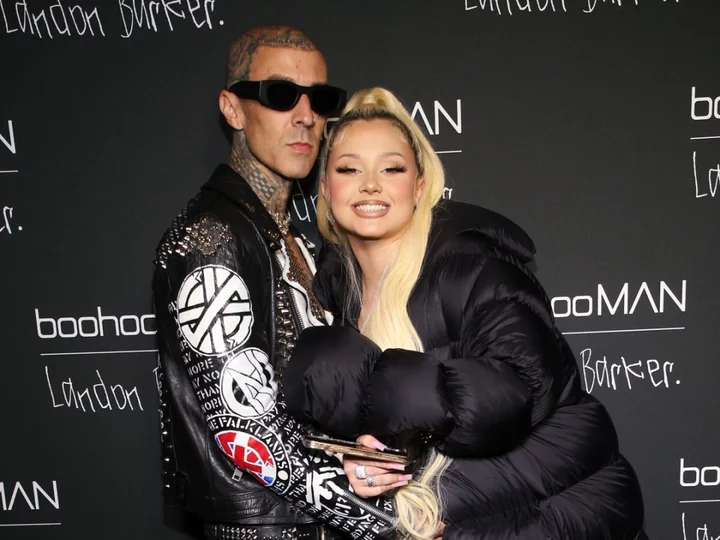
Alabama Barker shares struggle with autoimmune and thyroid disease amid body-shaming comments
Alabama Barker has revealed she struggles with an autoimmune and thyroid disease while addressing body-shaming comments about her weight. The youngest daughter of Blink-182 drummer Travis Barker hit out at body-shamers on TikTok after viral paparazzi photos led critics to refer to her as a “catfish”. The 17-year-old began her video by scowling at the camera, before she told her followers: “That’s my face when I see all the fake pages commenting about my weight in paparazzi pictures and saying I’m a catfish or saying I’m fat.” Barker went on to explain how “paparazzi will purposely take pictures” with “your mouth open, middle of sentence and any ugly picture they can get of you just for views”. “I would love to see you guys getting random pictures of you taken of you when you’re leaving the grocery store, in the middle of a sentence, with your mouth wide open - and let’s see how beautiful you look,” she said in the 20 August TikTok. She then revealed that fluctuations in her weight have been a result of her autoimmune and thyroid disease. According to Johns Hopkins Medicine, problems with the thyroid include a variety of disorders that can result in the gland producing too little thyroid hormone, called hypothyroidism, or too much thyroid hormone, called hyperthyroidism. Thyroid disorders can affect heart rate, mood, energy level, metabolism, bone health, and the body’s reaction to other hormones. “I also have a thyroid problem and an autoimmune disease, so that’s one of the main reasons why I have weight gain,” Barker said. “So, it would be very appreciated if you guys just keep your opinions to yourself. It will get you further in life.” The teen added that once her thyroid and autoimmune disease are “balanced,” she will go back to her “normal weight”. However, Barker emphasised that she’s only gained “five, 10 pounds” amid her health struggles, which she said is “so normal” for women. “I don’t want any girls that are young, watching this that are gaining weight to ever think there’s something wrong with it,” she continued. “There is a certain point when your health is getting affected by it that you need to change it, but, no. It’s not the case for me, and I would appreciate if you guys put yourself in my shoes.” @alabamabarker ♬ original sound - Alabama barker Since it was posted, Barker’s video has received more than 12m views and nearly two million likes. Many fans applauded Barker in the comments for opening up about her health struggles and shutting down body-shamers. “She’s so real with the thyroid comment because same,” one TikToker commented. “I have thyroid problems and an autoimmune disease too so I understand,” another fan wrote. “Weight really does fluctuate.” A third person said: “You are beautiful!! Stay strong!” Barker’s video comes after paparazzi snapped photos of the 17-year-old with her father, Travis Barker, and her pregnant step-mother, Kourtney Kardashian Barker. The Keeping Up with the Kardashians alum was seen sporting her growing baby bump, while Alabama was dressed in a graphic black T-shirt, black sweatpants, and an oversized hoodie. This is not the first time Barker has addressed negative social media comments. In April, she called out internet users who shamed her for wearing makeup, claiming that she was too young to wear a full glam. “When Kathryn with three kids only waterline liner, four different coloured blonde, and Tom shoes, talk about my makeup or age,” she captioned her TikTok video, which included the background audio: “I’ll tell you what you look like, but you won’t like it.” Alabama Barker is the youngest daughter of Travis Barker and Shanna Moakler. The former couple - who were married from 2004 to 2008 - share 19-year-old son Landon Barker as well. The drummer is also the adoptive father of Moakler’s oldest daughter, Atiana De La Hoya. Meanwhile, Travis and Kourtney revealed they were expecting their first child together last June. The reality star shares three children - Mason, 13, Penelope, 11, and Reign, eight - with ex Scott Disick. Barker and Kardashian tied the knot in May 2022. Read More Travis Barker discusses potential baby names for son with Kourtney Kardashian: ‘Even he knows it’s bad’ PrettyLittleThing advert banned for portraying 16-year-old Alabama Barker in a ‘sexual way’ Travis Barker praises Kourtney Kardashian for ‘healing’ him as he takes 30th flight following deadly crash
1970-01-01 08:00
